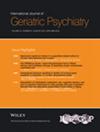Bidirectional Relationship Between Long Sleep Duration and Cardiac Autonomic Control in Community-Dwelling Older Adults: The Yilan Study, Taiwan
Abstract
Objectives
Long sleep duration predicts adverse health outcomes in older adults. Impaired cardiac autonomic control (CAC) is a potential pathomechanism that links this relationship; however, the causal relationship between long sleep duration and CAC remains unclear. This study aimed to determine the temporal relationship between long sleep duration and poor CAC.
Methods
This is a community-based, fixed-cohort, follow-up study that recruited community-dwelling older adults aged ≥ 65 years. Self-reported sleep duration was categorized as short (≤ 5 h), mid-range (6–7 h), and long (≥ 8 h). Participants with short or long sleep duration were defined as cases. CAC was measured using heart rate variability (HRV), and cases were classified using cutoffs defined by the lowest quintiles of four HRV parameters. Non-case participants for sleep duration or CAC at baseline were followed. Binary and multinomial logistic regression analyses were conducted to examine baseline variables that predicted incident CAC decline and changes in sleep duration, respectively.
Results
A total of 772 individuals were recruited, with a mean follow-up period of 5.8 ± 1.7 years. In multivariable analyses, long sleep duration at baseline predicted a higher risk of cardiac vagal control decline in the follow-up visit (odds ratio: 1.86, 95% confidence interval: 1.00–3.44). Conversely, all HRV parameters at baseline failed to predict changes in sleep duration at the follow-up visit.
Conclusions
Long sleep duration seems to precede the decline in CAC in community-dwelling older adults.

 求助内容:
求助内容: 应助结果提醒方式:
应助结果提醒方式:


